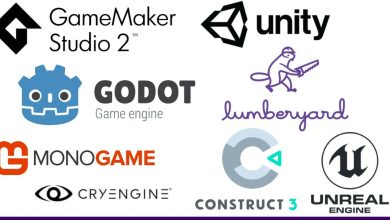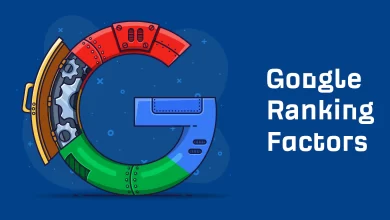
How Blockchain and AI fix can Supply chain industry affected due to Covid?
After the pandemic, more people are turning towards online shopping to meet all their essential needs. And, here, the potential of blockchain and Artificial Intelligence to track and handle huge data innovatively seems something to look forward to. In fact, AI and blockchain development in the area of the global supply chain have the power to run the entire industry effectively.
Furthermore, the decentralized nature of blockchain and AI’s ability to extract valuable insights can be beneficial for multiple aspects of supply chain processes.
In fact, as per a certified blockchain expert, we can expect an improved speed and accuracy across supply chain processes with the combination of these two technologies.
So, let us explore industries that can leverage blockchain and AI to operate their supply chain management.
Table of contents
- ICT
- Food and agriculture industry
- Pharmaceuticals industry
- Future approaches in blockchain development for supply chain
- Closing Thoughts
ICT
According to the certified blockchain expert team, a joint approach of these technologies can be an excellent solution to resolve the issue of disruptions and pandemic-caused delays in the ICT supply chain industry. Further, we found that the absence of a diversified supply chain, better inventory management, and transparency within the process are major causes of reducing the effectiveness of ICT supply chains.
In this scenario, experts in the field believe that blockchain and AI can work together to develop smart-inventory management and provide transparency in the space. As both these technologies can provide an end-to-end approach, attaining these aspects becomes possible.
Further, if you are curious to learn all the aspects of a blockchain mechanism, then take up an online blockchain course for your help.
Food and agriculture industry
In the global food supply chain, blockchain development and AI algorithms can help in enhancing food safety and distribution. Here, blockchain technology can effectively discover the source of food contamination within the food and agriculture industry. In addition to it, detecting fake products also becomes much easier due to blockchain’s ability to trace the entire life cycle of any product. On the other hand, AI can predict the supply amount needed at a particular period. Hence, reducing the chances of contamination due to supply delays.
Since the pandemic, we have seen a rise in the demand for a quicker food and beverage supply across global locations. And this demand is increasing with every progressive year. However, due to a sudden increase in demand, there are significant delays in the supply chain. And, due to this, again chances of food contamination increase.
At present, we have a good number of firms that employ blockchain solutions to tackle this issue. A few of these firms are thriving in the area even after the prevalence of Covid-19. Such as:
- A European company known as TE-FOOD International GmbH.
- Ireland’s ACR-NET,
- IBM
- Germany’s SAP SE
- Ambrosus from Switzerland and others.
These companies are leveraging blockchain development in the best possible way. However, you can learn potential applications of blockchain in other industries as well with your blockchain course online program.
Pharmaceuticals industry
The certified blockchain expert team has high hopes for blockchain development in the space of the pharma industry. In fact, many experts see it as the best possible solution to overcome logistics obstacles in the Covid-19 vaccine deliveries across global locations. Aside from this, the technology can also enable serial-wise product information transfer among the involved parties like manufacturers and Pharma stores. Here, AI aids the process by enabling multiple devices to collaborate and connect with the network allowing involved parties to access timely updates.
In this period of global emergency, providing a consistent supply of pharmaceutical products has been a significant challenge for the global healthcare industry. Moreover, predicting the right amount of product requirements is quite hard as it changes in minutes. Here, AI algorithms can provide live changes in supply needs. Further, data scientists can evaluate an approximate quantity of supply across locations by using this data. Hence, it will cut down the pressure to meet a high supply-demand for each location.
Additionally, blockchain can establish the credibility of medical supplies by offering direct links to the origin of the goods. And, blockchain encryption helps in maintaining adequate data privacy of the medical supply chain.
Future approaches blockchain development for supply chain
The Healthcare industry is leading the blockchain development approaches to enhance supply chain management. According to the Drug Supply Chain Security Act (DSCSA), a joint project between wholesale distributors, FDA, and the manufacturers in the Pharma industry: Pilot Project Program is upcoming.
Currently, the DSCSA is working on the development of an electronic system that will be able to detect and track certain prescription medications available in the USA.
6 of the 20 pilots that DSCSA is sponsoring will analyse the ability of blockchain technology. To enhance transparency in the supply chain processes. Also, they will check the traceability quality of block-chain to discover product ownership. Further, after gaining all the essential insights from the project, the officials will work to find out the best possible way to use technology in the future.
Aside from the Healthcare sector, commercial industries are also planning to leverage blockchain technology. For their inventory and supply chain management. Hence we can expect the adoption of blockchain technology across all data-driven sectors.
Closing Thoughts
We all are familiar with the severity of the covid-19 pandemic. In fact, since its commencement, we are also dealing with its continuous mutation threatening the life of many. Furthermore, current government systems lack the well-established mechanism for detecting new cases and predicting the risk of covid-19 spread. This is why we need a technical savvy solution to deal with coronavirus pandemics. Here, blockchain technology and AI, with their robust features, including immutability, decentralization, smart-connect, and real-time visibility, can help detect outbreaks. Additionally, it will enable quick traceability of drug distribution and provide robust privacy to sensitive medical data of patients’ treatment.
Learn more about blockchain technology, its application, and development across various industries at the BLOCKCHAIN COUNCIL. The platform provides you with blockchain online course programs under the guidance of experts in the industry.
READ MORE:- Effective communication in the classroom



